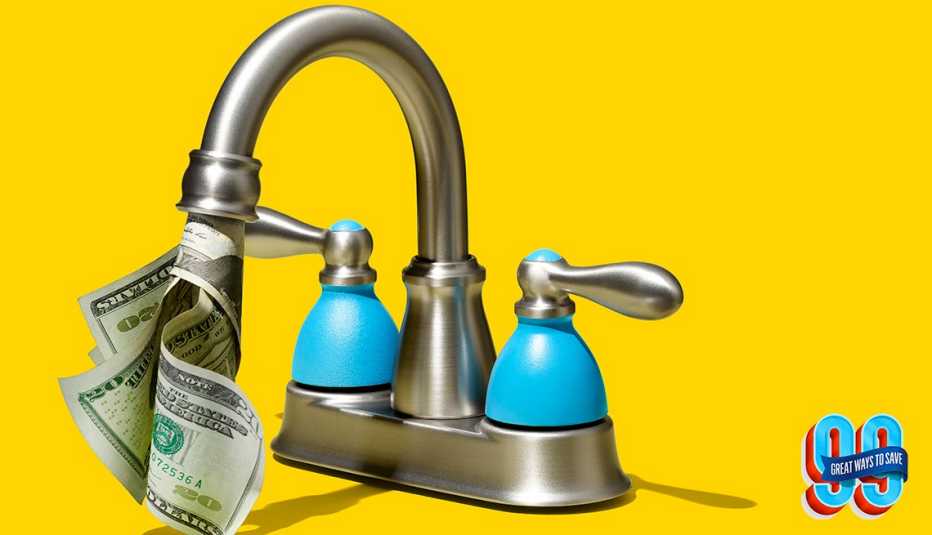Staying Fit


Seal your chimney flue. As much as 8 percent of your heating dollars could be escaping up the chimney. Seal it or install a chimney pillow, and save $80 on a $1,000 heating bill.
2. Get a programmable thermostat. Lowering or raising your home’s temperature by 7 to 10 degrees for eight hours as you sleep can save $100 a year. Get a programmable thermostat so you don’t forget.


AARP Membership— $12 for your first year when you sign up for Automatic Renewal
Get instant access to members-only products and hundreds of discounts, a free second membership, and a subscription to AARP the Magazine.
3. Ease your internet speed. Internet providers always push the newest, fastest options, but a basic service of 20 megabits per second (Mbps) is fine for the typical family to surf, email and stream videos. Optimum Online offers that speed at $29.99 a month. Save $120 every year.
4. Turn down your water heater. Most water heaters come from the factory set at 140 degrees – hot enough to scald. Turn it down to 120 degrees and save about $60 per year.
5. Seal your home. Inspect for leaks at windows and doors with a lighted incense stick. Sealing them could cut a $1,000 heating and cooling bill by $200. Really!
6. Get a tankless water heater. These units produce hot water on demand. They’re up to 30 percent more efficient than tanks that waste energy keeping water hot all the time. The typical family spends $500 a year heating water. Annual savings: $150.
7. Don’t drench your lawn. It needs just 1 inch of water per week, including rain. Sprinklers often deliver much more than that. Put a coffee mug under the sprinkler and stick in a ruler when you are done. If you collected 2 inches of water, you are spending about $158 a month during the summer on wasted water.
8. Clean your trap. A dryer can lose 75 percent of its efficiency if lint clogs its trap. Clean it after every use and save $101 on the annual cost of operating a dryer.
9. Find free Wi-Fi. Going over your phone’s data limit can easily cost you $180 a year. Download Wi-Fi Finder, an app that locates nearby locations where Wi-Fi is free. It works worldwide.
10. Save on your bulbs. LED bulbs are no longer scarily expensive. Replace 40 incandescent bulbs with LEDs, and you could save $1,500 over their 10-year life span.
11. Get it fixed for free. At Repair Café events nationwide, volunteers help fix a variety of household items that folks can’t fix themselves. Go to RepairCafe.org to find an event near you. You could save $100 by fixing that old lamp.
12. Stamp out stamps. Sign up to have all those bills paid by automatic withdrawal. If you are still mailing off five bills a month, you can save $30 a year on stamps — and avoid the hassle of visiting the post office.
13. Scan for unused subscriptions: Truebill, which helps users find subscription services and determine how much they're paying for them each year, claims that the average user can save $100 or more a year canceling what they don't need or renegotiating the bill.

































































More From AARP
99 Great Ways to Save
How to beat inflation and find lower prices on nearly everything
10 Ways to Save on Your Home & Garden
How to cut costs on your home, garden and pet care needs